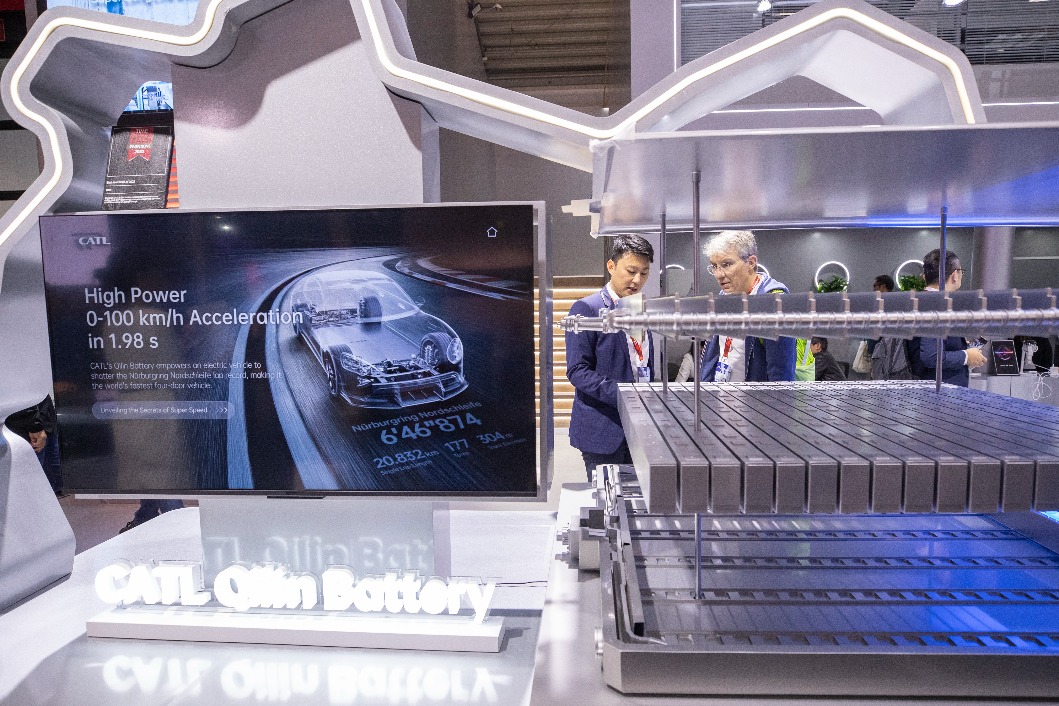Aiming for blue skies

Huang Ming makes green energy strides with solar water heaters
Making profits was the last thing in Huang Ming's mind when he decided to become an entrepreneur in China's fledgling solar industry in 1996.
| Huang Ming believes solar energy is all about attitude and his grouse is that five years is too short to champion the resource. Zhang Ke / for China Daily |
Huang has made many strides since then. But he says his journey has been more of a commitment and a dream to ensure blue skies for future generations.
"It is a responsibility that we have to ensure for children," he says.
Though the use of solar energy is steadily growing, there is still a long way to go before it can equate or surpass China's current dependence upon fossil fuels, says Huang, board chairman of the Himin Group and vice-president for industry at the International Solar Energy Society .
"Why can't renewable energy products be as popular as the iPad or the iPhone," he asks. Comments like these have often led him to being termed as a "Solar Energy Madman".
That, however, has not reduced his zeal and passion for solar energy, nor his sharp viewpoints.
Back in 1977, Huang did not have solar dreams in his eyes. Like many others of his generation, the 19-year-old Huang enrolled himself at the China University of Petroleum and subsequently majored in Oil Equipment Engineering.
But the turning point came during one of the first lessons in the college. During a lecture, his professor told the class that the oil reserves would last only for 50 years, and "China is an oil-poor country".
The words are even now etched in his mind, he says.
After his college studies, Huang joined the Ministry of Geology and Mineral Resources as an engineer, an employment that would last for over 10 years.
Though his employment was exciting as there were innumerable oil finds, it was also a period of immense guilt. Huang took each discovery with a pinch of salt as he felt that he was depriving his children of clear blue skies.
|

|
That was also the time when solar energy started gaining ground. Huang stumbled upon a book that dwelt in detail on how solar energy could be used to heat water.
Buoyed by the prospects of dabbling in clean energy, Huang decided to test his luck by building solar water heaters.
Fired up with his solar energy dreams, Huang left his well-paying job in the oil industry in 1995 and decided to be an entrepreneur.
"Oil will be depleted in three decades and coal could be burnt out in 200 years. What will we leave for our children?" he asks.
In 1996 Huang set up Himin Group, which is currently the world's largest manufacturer of solar water heaters.
But his pet venture is the "Solar Valley" project in Dezhou, Shandong province. Spread over 330 hectares, the project includes a wide range of solar technologies such as water heating, air conditioning and solar-equipped buildings.
Huang expects the "Solar Valley" to become the main center for solar thermal production, logistics, research, quality testing and tourism.
The Himin headquarters in Dezhou stands testimony to Huang's solar dreams. The facility runs entirely on solar power and has other facilities like solar water heaters, heating system, cooling system, and a photovoltaic power system.
Compared with other similar sized facilities in China, the Himin building can save more than 88 percent of energy every year, equaling 2,640 tons of coal or 6,600 kWh.
In Huang's opinion, solar energy is all about attitude.
"When Chinese citizens have the urge for solar energy products, like they have for iPhones and cars and when they are willing to live in solar energy apartments, it will solve most of our problems," he says.
The government has envisaged that non-primary energy should account for at least 11 percent of the total energy consumption under the 12th Five-Year-Plan (2011-2015). That as Huang, puts it, is indeed a tough task.
"Economic growth is synonymous with higher energy consumption. Though the 11 percent target is a small one, it is still difficult to achieve based on the current situation in China," he says.
His grouse is that five years is too short a period to champion solar energy. "Energy supply is the most significant issue in urban development, so we need a 50-year-plan, or at least a 30-year-plan for energy usage."
Today's Top News
- Outline of Xi's thought on strengthening military published
- Targeted action plan to unleash consumption momentum
- Separatist plans of Lai slammed
- Sinologists help to bridge civilizations
- HK unveils sweeping steps after huge blaze
- China releases white paper on arms control































